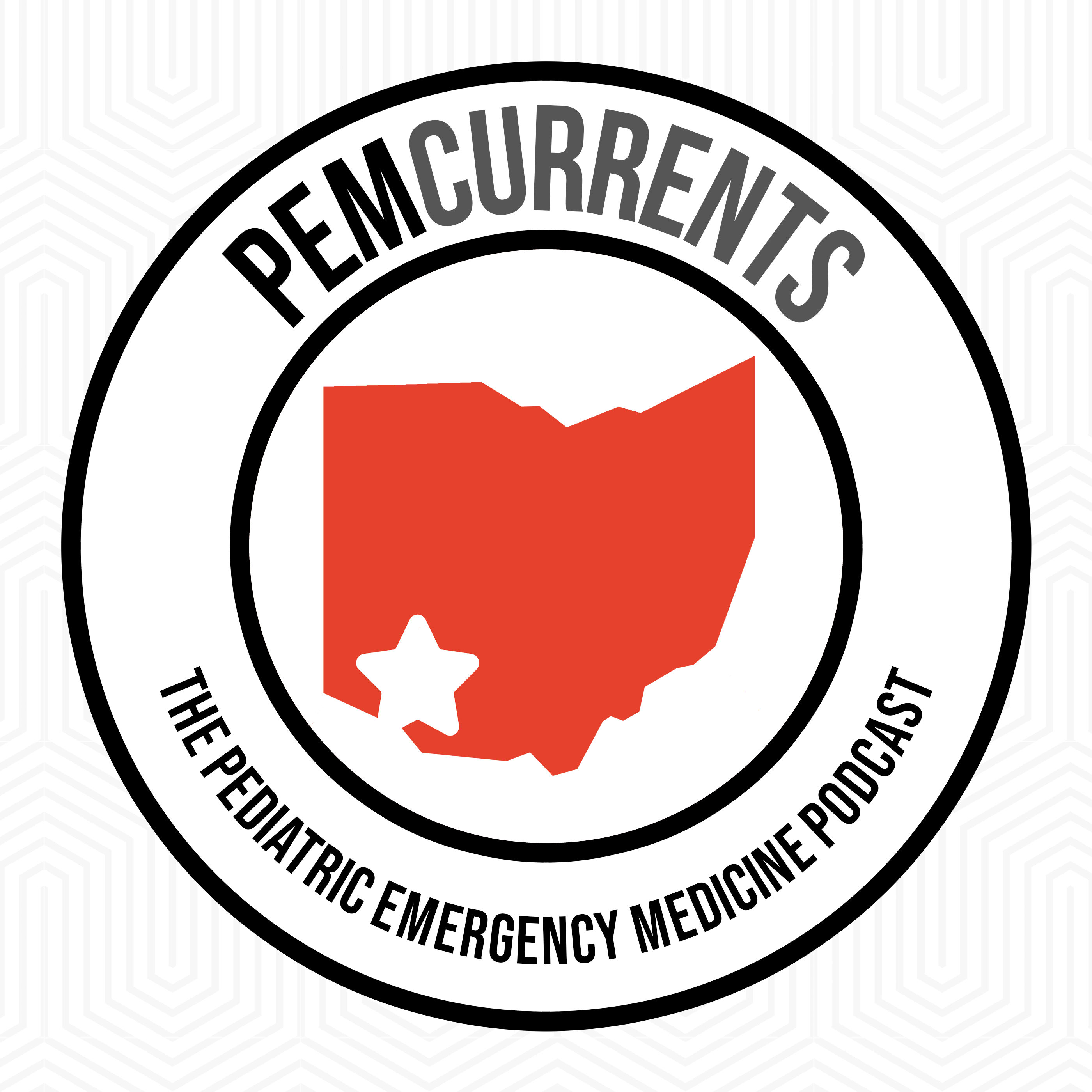Most children who present to Pediatric Emergency Departments these days with mental health concerns – including agitation – have a known psychiatric problem or diagnosis. Furthermore, the connection between physical and functional symptoms is inextricably linked in many patients. Why then do we persist with the “is it medical/organic or psych” question? Ultimately, this episode hosted by Brad Sobolewski (@PEMTweets) and co-authored by Dennis Ren (@DennisRenMD) is less about “is it psych or not” and more about not missing something because you assumed the patient had a mental or behavioral problem. It is also episode 1 in a 5 episode series focused on agitation in children and adolescents.
After listening to this episode you will be able to:
- Describe the findings on history and physical examination that differentiate organic vs psychiatric causes of agitation and altered mental status.
- Develop a strategy to differentiate organic from psychiatric causes of altered mental status, including using ancillary studies
This episode is a co-production of the Emergency Medical Services for Children Innovation and Improvement Center whose mission is to minimize morbidity and mortality of acutely ill and injured children across the emergency continuum. We have developed a series of pain focused episodes.
Other Episodes in the Agitation Series
Episode 2: Non-pharmacologic management of agitated children (Coming May 24, 2023)
Episode 3: Pharmacologic management of agitated children (Coming May 31, 2023)
Episode 4: Safe pre-hospital transport of the agitated child (Coming June 7, 2023)
Episode 5: Management of the child with mental health problems who is boarded in the Emergency Department (Coming June 14, 2023)
Listen

Managing Pain in Sickle Cell Vaso-Occlusive Crises – PEM Currents: The Pediatric Emergency Medicine Podcast
Subscribe
EMDocs Collaboration
EMDocs.net – the excellent Emergency Medicine site will also be contributing a supplementary article for each episode that will be posted each Friday following the release of the podcast episode. These articles will take another look at the content included in this episode.
Special thanks to Manpreet Singh, MD (@MprizzleER) for helping to put this collaboration together.
EMSC IIC
To learn more about the Emergency Medical Services for Children Innovation and Improvement Center visit https://emscimprovement.center
Email km@emscimprovement.center
Follow on Twitter @EMSCImprovement
EMSC IIC: Pediatric Education and Advocacy Kit (PEAK): Agitation
Disclaimer
The Emergency Medical Services for Children Innovation and Improvement Center is supported by the Health Resources and Services Administration (HRSA) of the U.S. Department of Health and Human Services (HHS) as part of an award (U07MC37471) totaling $3M with 0 percent financed with nongovernmental sources. The contents are those of the author(s) and do not necessarily represent the official views of, nor an endorsement, by HRSA, HHS, or the U.S. Government. For more information, please visit HRSA.gov
To learn more about the Emergency Medical Services for Children Innovation and Improvement Center visit https://emscimprovement.center
Email km@emscimprovement.center
Follow on Twitter @EMSCImprovement
References
Hua LL, COMMITTEE ON ADOLESCENCE. Collaborative Care in the Identification and Management of Psychosis in Adolescents and Young Adults. Pediatrics 2021; 147.
Sedel F, Baumann N, Turpin JC, et al. Psychiatric manifestations revealing inborn errors of metabolism in adolescents and adults. J Inherit Metab Dis 2007; 30:631.
Chun TH, Sargent J, Hodas GR. Psychiatric emergencies. In: Textbook of Pediatric Emergency Medicine, 5th, Fleisher GR, Ludwig S, Henretig FM (Eds), Lippincott Williams & Wilkins, Philadelphia 2006. P.1820.
Cunqueiro A, Durango A, Fein DM, et al. Diagnostic yield of head CT in pediatric emergency department patients with acute psychosis or hallucinations. Pediatr Radiol 2019; 49:240.
Gerson R, Malas N, Feuer V, Silver GH, Prasad R, Mroczkowski MM. Best Practices for Evaluation and Treatment of Agitated Children and Adolescents (BETA) in the Emergency Department: Consensus Statement of the American Association for Emergency Psychiatry. West J Emerg Med. 2019 Mar;20(2):409-418. doi: 10.5811/westjem.2019.1.41344. Epub 2019 Feb 19. Erratum in: West J Emerg Med. 2019 May;20(3):537. Erratum in: West J Emerg Med. 2019 Jul;20(4):688-689. PMID: 30881565; PMCID: PMC6404720.
















[…] podcast posted on PEM Currents – Hosted by Brad Sobolewski (@PEMTweets) and co-authored by Dennis Ren […]